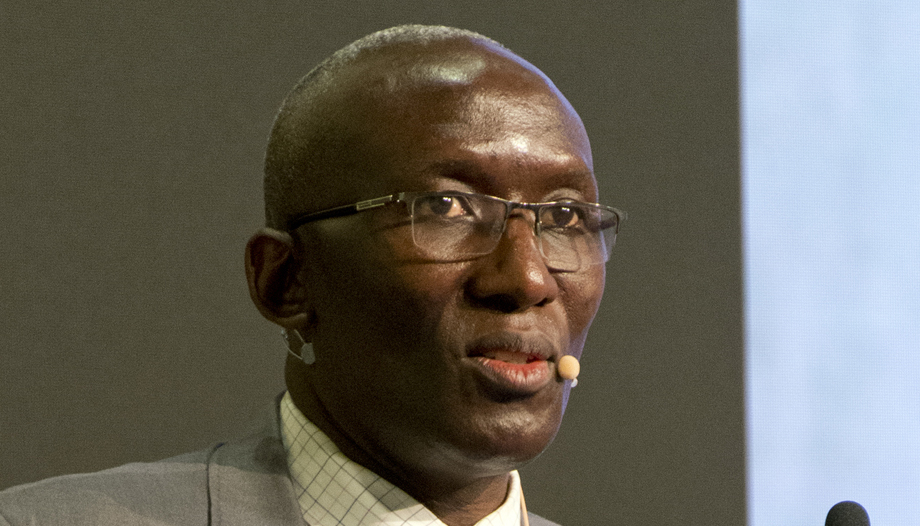Opioids such as morphine "are not sufficiently accessible," Dr. Emmanuel Luyirika tells Omnes. "Even in the countries that have made the most progress in palliative care. Access to medicines remains one of the big challenges in Africa. We are working to get governments involved in this issue."
"We believe that if palliative care is accessible and the patient's needs are met, the issue of euthanasia will not arise. There is no big social debate on this issue [euthanasia] in Africa; maybe there is a small debate in South Africa, but not beyond that," he adds.
Dr. Emmanuel Luyirika has participated in the symposium international conference 'Global Palliative Care: Challenges and Expectations', sponsored by the World Health Organization (WHO), and organized by the Ramón Areces Foundation and the Observatory Global Palliative Care Atlantes, from the Institute for Culture and Society of the University of Navarra, which has been designated as a new WHO collaborating center for the evaluation of the global development of Palliative Care.
Panelists from WHO, the African Association for Palliative Care and the International Association for Palliative Care, as well as M.D. Anderson Cancer Center (USA) and Hospice Buen Samaritano (Argentina) participated in the symposium.

The meeting was presented by Raimundo Pérez-Hernández y Torra, Director of the Ramón Areces Foundation; Marie-Charlotte Bouësseau, Team Leader in the Department of Integrated Health Services of the World Health Organization at headquarters (Geneva); Joaquim Julià Torras, Vice-President of the Spanish Society of Palliative Care (SECPAL); and Paloma Grau, Vice-Rector for Research and Sustainability of the University of Navarra.
More need for palliative care
The issue is of increasing concern to specialists because, as noted at the symposium, the number of people in need of palliative care is almost will double in 2060: from 26 million to 48 million worldwide, as has been the case in the past few years. reporting Omnes. Because of the type of illnesses that occur, up to half of the people in the world will need the relief of palliative care in severe and end-of-life processes.
Today, it is estimated that of the more than 50 million people in need of palliative care each year, 78 % live in low- and middle-income countries, while only 39 % of countries report widespread availability of palliative care.
The event provided yet another opportunity to promote palliative care, discuss the challenges it faces around the world and reiterate WHO's commitment to the field, taking advantage of the publication of the report ‘Assessing the development of palliative care worldwide: a set of actionable indicators', prepared jointly with Atlantes.
The Dr. Emmanuel Luyirika responds to Omnes on palliative care in Africa.
How is palliative care developing in Africa, and which countries are at the forefront of this development?
- The most advanced countries in the development of palliative care in Africa are mostly located in eastern and southern Africa, including South Africa, Uganda, Malawi, Kenya and Zimbabwe. The countries at the tail end of this development are the Central African countries, especially the French-speaking ones. A greater effort must be made there to bring them on board in the development of palliative care. In any case, even in those countries that are more advanced, much work remains to be done.
What are the challenges facing countries that are at the tail end of this development?
- The main challenge is access to essential medicines for palliative care. This challenge has two aspects. On the one hand, there are regulations and restrictions on access to these medicines, and on the other hand, there is also the lack of resources to acquire them. The other major challenge is the lack of trained personnel to administer palliative care. Similarly, the tools to collect data on palliative patients are also lacking. Of course, the lack of funding for palliative care is one of the major difficulties, as well as the lack of directives or policies that take this aspect into account.
In these countries is palliative care funded by the government or by individuals and families?
- In most countries there is a government-funded portion. In Uganda, for example, the government funds all the morphine that palliative patients need, so that individuals do not have to pay out of their own money for this medicine. Morphine can be accessed in case of need whether you are in a public or private medical institution at no cost, but this is not possible in other countries.
In Botswana, the government funds palliative care in both public and private facilities. The South African government provides resources for charitable facilities to implement palliative care. These countries are at the forefront in this regard, along with Rwanda, which has national health insurance that provides access to palliative care. The work of Malawi, which is making great efforts and has been well positioned in the latest global rankings, should also be highlighted.
Are opiates such as morphine accessible in Africa?
- They are not sufficiently accessible. Even in the countries that have made the most progress in palliative care. Access to medicines remains one of the big challenges in Africa. We are working to engage the government on this issue. It is a problem that does not respond to a single factor. There are many factors. You have to work on awareness among politicians and people who design regulations, awareness among health centers, among patients... but you also have to get the money to create systems to administer these medicines.
What kind of problems does the patient requiring palliative care in Africa have?
- The patient who requires palliative care in Africa is a patient who has cancer, but it can also be a patient with HIV, or with tropical diseases... or they may have kidney or heart failure due to infection or some other type of disease. There may also be patients with genetic diseases. The profile is very varied.
After Covid-19, how do you see the future of palliative care in Africa??
- The future of palliative care after Covid-19 must rely on technology, on the ability to access services through technology. The cell phone has been widely used in Africa and is now becoming a platform where patients can get in touch with health care workers. It is also important to train staff in palliative care; it is also important to train staff in intensive care units so that they know when to refer a patient to palliative care. The future of palliative care also lies in integrating palliative care into the healthcare system, rather than leaving it in isolated centers.
Are there any African countries that have approved euthanasia?
- No, euthanasia has been roundly rejected in Africa. Both in Africa globally and in each individual country. The focus is on making palliative care accessible to the population: we believe that if palliative care is accessible and the patient's needs are met, the question of euthanasia will not arise. There is no great social debate on this issue in Africa; perhaps there is a small debate in South Africa, but not beyond that.
This concludes the interview with Dr. Luyirika. Another of the panelists at the international symposium, Matías Najún, head of the Comprehensive (Palliative) Care Service at Austral University Hospital and co-founder and current president of Hospice Buen Samaritano (Argentina), stressed that "research shows that poverty reduces access to palliative care, which in turn is a very scarce commodity worldwide".
In his opinion, "in our healthcare systems, conceived for the acute or focused on specialties, palliative patients are avoided, but if they are also poor, they become almost invisible," he lamented. In these cases, in which "the complexity of life is much greater than the disease," he called for "being creative to make them visible, providing care that is accessible and tailored to these patients," because "beyond the social reality, when someone suffers, great poverty is not only an economic issue; the lack of care that dignifies at that moment is also a concern," he stressed.








